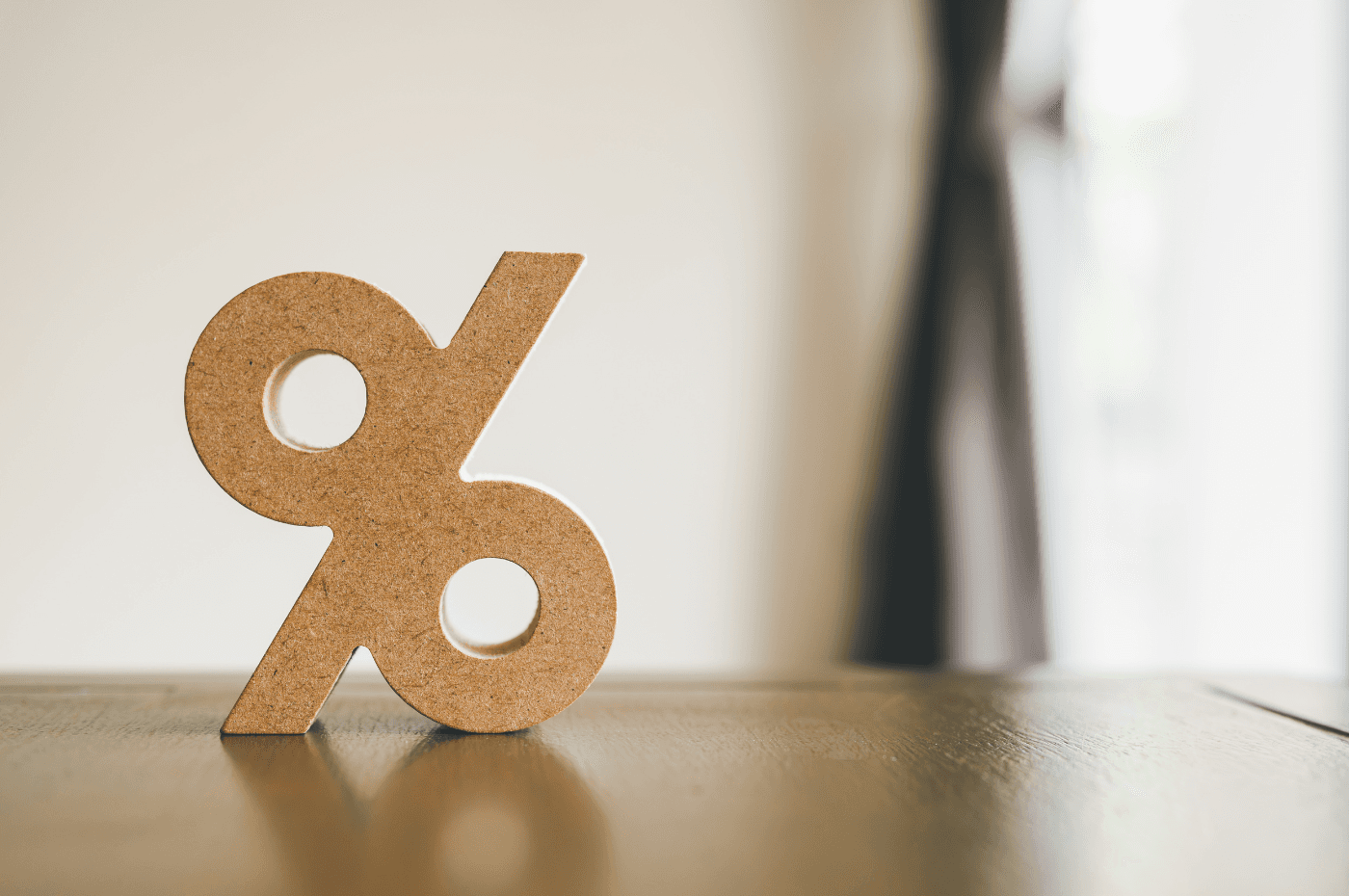Securing favourable mortgage terms is crucial when searching for a loan. Did you know that finding the best mortgage rate could save you thousands over the life of your loan?
Even a small difference in interest rates can have a major impact on the total amount of interest you’ll pay. However, finding the best option or negotiating with lenders isn’t always straightforward.
To help you, we’ve gathered practical strategies and expert advice to guide you in securing the best mortgage rate for your needs.
Why do mortgage rates vary so much?
First, it’s important to know that mortgage rates don't just differ between lenders; they are also constantly changing. Interest rates can go up or down depending on several factors, including:
-
Economic policies: Decisions made by the Bank of Canada, especially in response to inflation, have a direct impact on the rates offered by financial institutions.
-
Market conditions: Lender competition can play a significant role in shaping interest rates, as they compete to attract customers.
-
Loan characteristics: Certain types of loans may come with lower interest rates than others.
-
Your financial profile: Factors like your credit score, income, and debt-to-income ratio influence the rates you're eligible for.

How to secure the best interest rate for your mortgage?
Let’s be honest: navigating the mortgage process can be tricky and overwhelming. It might be tempting to just accept the offers from your bank, but that’s often not the best choice, as they aren’t always the most competitive!
To make sure you secure a favourable mortgage loan with the lowest rate possible, follow the steps below.
1. Take a look at your finances
Before you start shopping for a mortgage, make sure your financial situation is in good shape, so you’ll leave a positive impression with lenders. To do this:
-
Improve your credit score: Pay off any existing debts and avoid making late payments.
-
Increase your down payment: The bigger your down payment, the less you’ll need to borrow, reducing the risk for lenders and improving your chances of loan approval.
-
Reduce your debt-to-income ratio: Lenders prefer borrowers with a manageable debt ratio (less than 32% for the GDS and less than 40% for the TDS).
2. Compare offers from multiple banks
With so many lenders out there, finding a competitive rate that suits your needs can be challenging. The best approach? Compare the available offers in the market. Here’s how you can do it:
-
Use online tools: Rate comparison websites can provide a quick overview of different options available to you.
-
Consult lenders directly: Banks, credit unions, and private lenders may have different terms to offer.
-
Hire a mortgage broker: A broker can shop around on your behalf and find the best deals tailored to your situation.
No matter which method you choose, comparing offers is a key step in securing the best terms. You might be surprised at how varied the offers can be!

3. Determine the type of mortgage you want
If you haven’t already, it’s important to decide which type of mortgage best fit your needs. There are several options, including:
-
Open mortgage:
- Shorter term
- Higher interest rate
- Allows you to repay your loan in full or in part at any time
- No penalty for early repayment
-
Closed mortgage:
-
Longer term
-
Lower interest rate
-
Fixed payments for the entire term
-
Financial penalty for early repayment
-
An open mortgage offers more flexibility, allowing you to adjust your repayments as your financial situation changes. It’s ideal if you expect a significant cash inflow soon, like from selling a home or receiving an inheritance.
A closed mortgage gives you more time to pay off the debt, which can provide peace of mind. However, if you repay a larger portion of your loan earlier than planned, you could face hefty financial penalties.
4. Choose between a fixed or variable rate
The type of interest rate you choose will impact how much you pay in interest with each payment. Your options are:
-
Variable rates: This rate fluctuates with market trends, meaning your mortgage payments may increase or decrease depending on economic conditions, the prime rate, and the benchmark rate.
-
Fixed rates: This is a set rate that remains the same throughout the term of your mortgage, giving you predictable monthly payments.
-
Hybrid rates: In some cases, you can combine both fixed and variable rates, though this option is less common and more complex.
Your choice of mortgage rates will depend on how much risk and uncertainty you're comfortable with. Variable rates tend to be lower than fixed rates, but fixed rates are often preferred for those who want more stability and easier financial planning.

5. Choose your mortgage term and amortization
After selecting your interest rate type, the next step is to decide how long you'd like to lock in your rate. Two key factors will influence the interest rate you’re offered:
-
The mortgage term: This is the duration during which your mortgage contract and its conditions are in effect. Terms typically range from 6 months to 10 years, with 5 years being the most common.
-
The amortization period: This is the total time needed to fully repay your mortgage. It’s usually set at 25 years, divided into several terms.
In general, short-term mortgages offer lower interest rates than long-term loans. However, with a short term, you’ll need to renew your contract more often, which exposes you to potential interest rate fluctuations.
The amortization period mainly affects the total amount of interest you'll pay over the life of the loan. A shorter amortization period means less interest will accumulate, but your monthly payments will be higher. On the other hand, a longer amortization period reduces your monthly payments, but it increases the total interest you’ll pay over time.
6. Choose your payment frequency
While the frequency of your payments doesn’t directly affect the interest rates offered, it can significantly influence the total amount of interest you’ll pay over the life of your mortgage. Opting for more frequent payments can help reduce the amount of interest that accrues, potentially saving you thousands in the long term!
Here are the available payment options:
-
Monthly mortgage payment: Deducted once a month on the same date, resulting in 12 payments per year.
-
Biweekly mortgage payment: Deducted every two weeks, leading to 26 payments per year. Many people choose this option as it aligns with their pay periods.
- Calculation: monthly payment × 12 ÷ 26.
-
Accelerated biweekly mortgage payment: This is similar to the biweekly payment, but the amount is slightly higher.
- Calculation: monthly payment ÷ 2.
-
Weekly mortgage payment: Deducted every week on the same day, totalling 52 payments per year.
- Calculation: monthly payment × 12 ÷ 52.
-
Accelerated weekly mortgage payment: Similar to the accelerated biweekly payment, but the payment amount is a bit higher.
- Calculation: monthly payment ÷ 4.

Use a mortgage calculator to assist you
Since calculating the impact of payment frequency can be tricky, using a mortgage calculator can help you simulate your payments and track how your loan evolves over time. This tool can clarify things and guide you in making an informed decision.
Here’s an example to illustrate the difference between various payment frequencies:
An individual takes out a mortgage of $200,000 with a fixed rate of 3.5% over 25 years. The monthly payment is set at $1,000.
If the borrower opts for a standard weekly payment plan, their payment will be $230.77 per week.
If they choose an accelerated weekly payment, the payment will be $250 per week.
In this example, by choosing the accelerated weekly payment, the borrower will pay $19.23 more each week, but they will save $13,000 in interest over 25 years. That’s significant savings to consider!
7. Negotiate the offered rate
Once you’ve selected your mortgage terms, your lender will present you with an interest rate. Don’t be afraid to negotiate, either directly with the lender or through your mortgage broker, to get the best possible rate.
Here are some negotiation strategies that could help:
-
Highlight your strong financial history and good payment habits.
-
Mention that you have offers from other financial institutions.
-
If you’ve received a lower rate elsewhere, ask your lender if they can match it.

Should you opt for the lowest rate?
While the interest rate you choose can have a big impact on the total cost of your loan, you might be tempted to simply go for the lowest rate without considering the other conditions attached to it. However, this could be a mistake!
While the rate is certainly important, it’s far from the only factor to consider before signing the contract.
In addition to negotiating your mortgage rate, make sure to also review and negotiate the other terms of your mortgage to ensure the entire package works in your favour.
The mortgage broker: your best ally for a favourable loan
To increase your chances of securing the best rate and the mortgage option that suits your needs, hiring a mortgage broker is a smart choice.
This professional will shop around on your behalf, comparing rates based on your specific situation. They’ll also break down the complexities of the mortgage process, helping you save as much as possible and avoid potential pitfalls.
Best of all, a mortgage broker won’t cost you anything directly, as they’re compensated through a commission from the bank you choose. This means you get expert advice and recommendations at no extra cost to you!
Are you looking to get the best rate for your mortgage loan?
XpertSource.com can help you in your efforts to find a mortgage broker. By telling us about your project, we will refer you to top-rated experts, free of charge! Simply fill out the form (it only takes 2 minutes) and you will be put in contact with the right experts.





